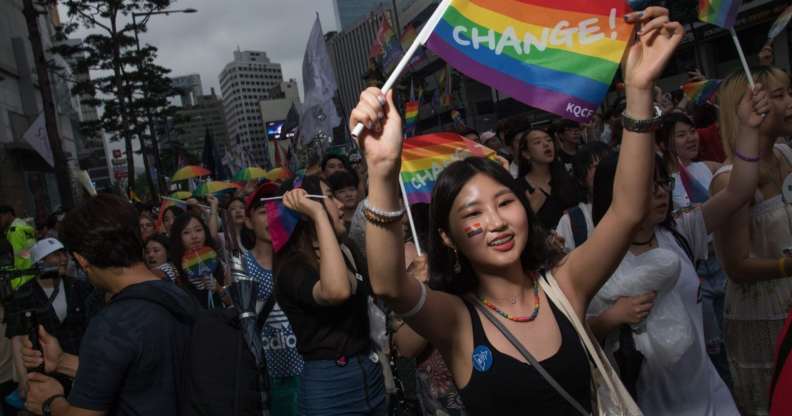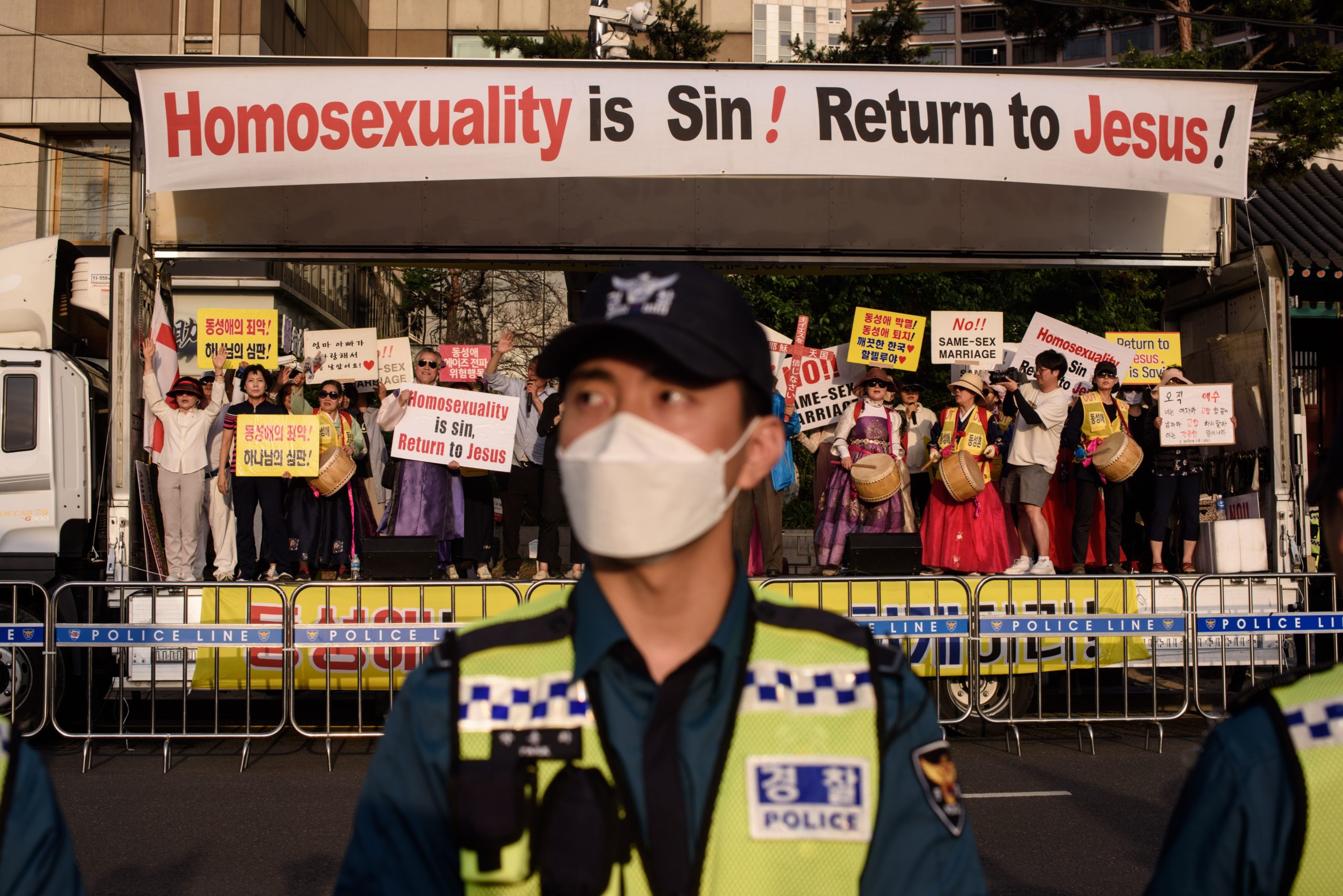South Korean president remains silent amid growing pressure to enact the country’s first-ever LGBT+ protection law

Pride in Seoul, South Korea. (ED JONES/AFP/Getty Images)
The president of South Korea is facing increasing pressure to enact the country’s first ever anti-discrimination legislation.
Dubbed the ‘equality law’, the bill would set a milestone in South Korea by providing legal protection for all citizens, including LGBT+ people. It was proposed by South Korea’s progressive Justice Party, but requires the backing of president Moon Jae-in’s ruling Democratic Party to pass.
But president Moon, a former human rights attorney, has remained notably silent on the issue.
Addressing the president on Tuesday (June 30), the National Human Rights Commission of Korea (NHRCK) urged him to take a stand, pointing to the international human rights treaties to which South Korea is a party.
“Equality legislation already exists in most of the OECD member countries, except Korea and Japan,” said NHRCK chairperson Choi Young-ae.
“As a member of the United National Human Rights Council, Korea must now respond to the requirements of the international community to establish equality laws.”
South Korea president Moon Jae-in refuses to comment on equality law.
Where Moon truly lies on the matter is unclear. In 2012 he ran for leadership on a campaign of enacting an anti-discrimination law; five years later he said he opposed discrimination but also opposed homosexuality.
When questioned by the Nikkei Asian Review, the president and his party refused to give a statement on the bill – possibly to appease the Christian church, which still has a powerful influence on South Korean politics.
But to the surprise of many, the National Council of Churches in Korea has actually expressed their support for the bill. In a statement, they compared the anti-discrimination law to Christian law that “proclaims freedom and liberation” for everyone.
“It is a practice that embodies the value of Christian love and equality in society,” they said.

Conservative anti-LGBT+ Christians protesting against a Pride parade in South Korea (ED JONES/AFP/ Getty)
This didn’t stop a handful of Protestant campaigners gathering outside the NHRCK in protest with the familiar battle cry of “free speech”. But the need for an equality law is becoming increasingly clear as the incidents of discrimination become harder to ignore.
The stigma experienced by South Korea’s LGBT+ community was recently laid bare when a coronavirus spike in gay clubs precipitated a wave of homophobia that saw LGBT+ people “hunted” and threatened with doxxing on dating apps.
This homophobic hysteria had the result of driving queer people deeper into the closet, significantly hampering COVID-19 tracing efforts.
“The coronavirus pandemic made us realise that each of us are connected to one another, and in order to guarantee the dignity and security of all of us, each of our different lives should be respected as is,” said Justice Party leader Sim Sang-jung at a news conference.
“Now it is the time to … become a developed country for human rights. The anti-discrimination law will be the starting point for a human rights-advanced country.”

